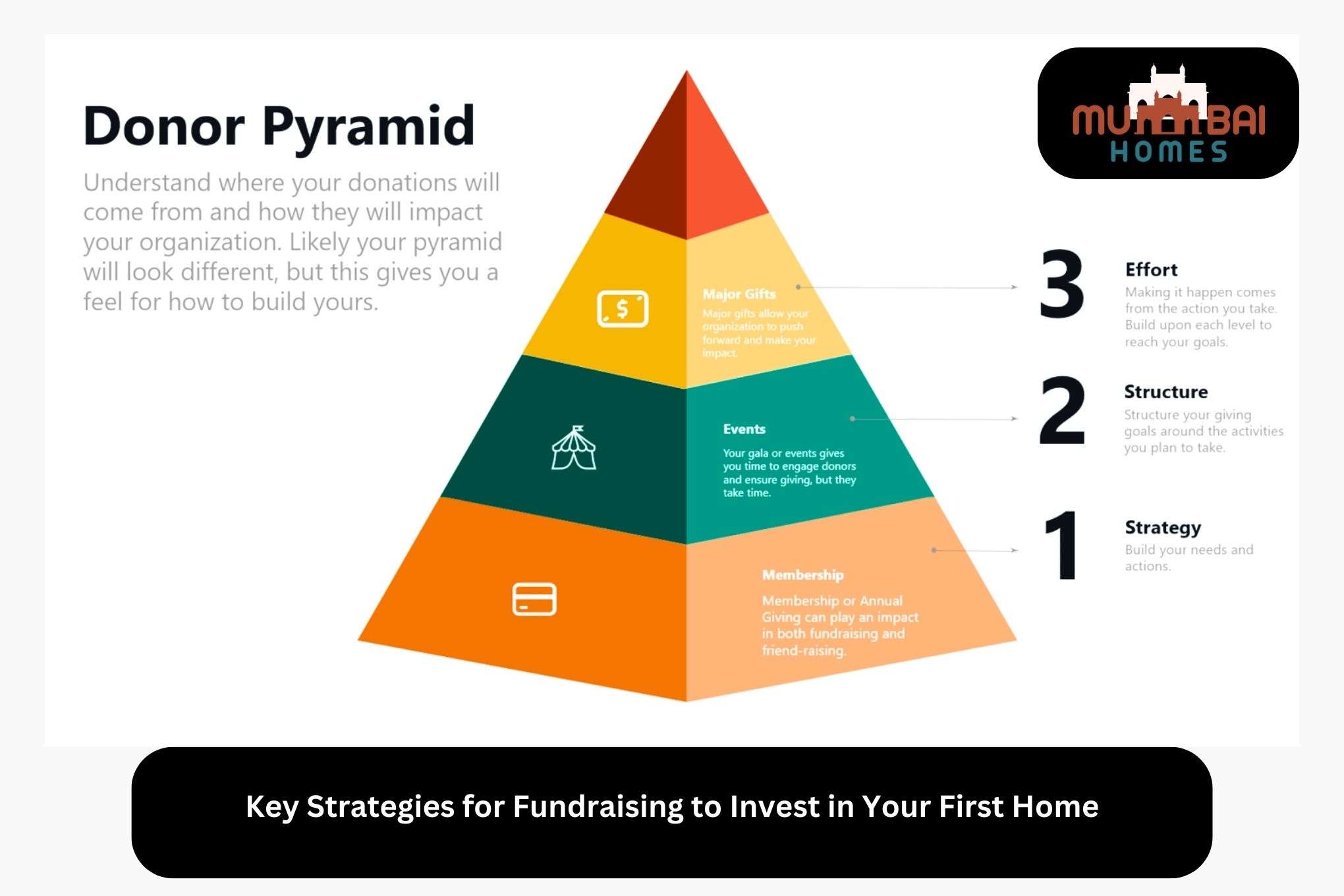Key Strategies for Fundraising to Invest in Your First Home:
When you decide for a first home purchase is an extensive milestone, however, the finance thing may be hard. However, with the proper strategies, you may effectively improve your price range and make your dream home a reality.
Key Strategies:
Innovative Financing Options:
Consider alternative financing methods along with home equity sharing, in which investors make contributions on your down payment in exchange for a percent of future home appreciation. Real estate funding trusts (REITs) can also offer access to budget through investments from more than one individual. Exploring these options can help bridge the economic gap for your first home purchase.
Maintaining a Good Credit Score:
A good credit score score is important for securing favourable loan phrases. Pay all bills on time, minimize credit score card usage, and keep away from taking over excessive debt. Regularly screen your credit score document and resolve any discrepancies right away.
Substantial Down Payment:
Saving for a tremendous down charge demonstrates economic responsibility and reduces the amount you need to borrow. Explore ways to increase your financial savings, along with cutting expenses, or saving windfalls like tax refunds. A large down payment also results in a lower loan-to-value ratio, potentially resulting in better mortgage phrases.
Researching Properties:
Thoroughly research residences in your area to locate the exceptional charges on your funding. Understand market trends, neighbourhood dynamics, and potential growth areas. This expertise will help you are making informed choices and pick out properties with the capability for future appreciation, making sure your first home purchase is the best funding.
Understanding Mortgage Loans and Eligibility:
Familiarize yourself with various mortgage alternatives and their necessities. Consider elements like interest rates, mortgage terms, and down payment necessities. Pre-qualify or get pre-accepted for a mortgage to determine your borrowing potential and streamline the buying method.
Seller Consciousness:
When trying to find properties, remember sellers who can be extra open to financing options. Look for dealers, together who have had their properties available on the market for an extended length. This can provide possibilities for innovative financing preparations
Renting out Other Properties for Income:
If you already have a home, rent them out to generate additional earnings. Rental profits can assist supplement your financial savings and contribute towards your first home purchase. This strategy may be specifically effective when you have funding homes with positive cash flow that may be leveraged in the direction of your down payment.
Exploring Commercial Mortgage Rates and Loans:
If you are considering buying propertiess with industrial potentials, such as multifamily properties, explore commercial mortgage rates and loans. Commercial financing alternatives might also provide flexibility in terms of mortgage structure and borrowing potential, potentially assisting you in acquiring a propertiess that fits your funding needs.
Consider Hard Money Lending:
Hard money lending entails borrowing from private people or groups specializing in quick-term loans secured by using real estate property. While interest rates can be better, this selection can be precious if you have much less-than-perfect credit. However, thorough research and understanding the terms and risks are important.
Key Takeaways:
- Exploring innovative financing options like home-equity sharing and REITs can assist bridge the monetary gap for your first home purchase.
- Maintaining an excellent credit score is vital for securing favourable loan terms.
- Gathering a full-size down price demonstrates financial obligation and can result in better loan terms.
- Thoroughly researching houses lets you make informed investment choices.
- Understanding loan loans and eligibility allows you to choose a mortgage that suits your needs.
- Consider negotiating with influenced sellers or exploring innovative financing alternatives to secure favourable purchase terms.
- Generate extra earnings by using renting out different houses you own, contributing in the direction of your first home purchase.
- Explore business mortgage quotes and loans if you are thinking about assets with commercial ability.
- Hard money lending may be a possible option for short access to funds or for individuals with less-than-perfect credit scores.
Conclusion:
First home purchase requires plans and a proactive method. By implementing these strategies and staying informed approximately the real estate market and financing options, you can grow your possibilities of efficiently investing first home.
FAQ:
1. Can I use a personal loan for my down payment?
ANS: It’s generally now not encouraged to use a private loan on your down payment, as it may increase your loan-to-value ratio and affect your loan eligibility.
2. How can I keep a good credit score?
ANS: By paying payments on time, minimizing credit card usage, and resolving discrepancies in credit score documents.
3. Why is paying off debt important?
ANS: Reducing existing debts improves your financial profile and increases your borrowing capacity.
4. How much down payment is needed for the first home purchase?
ANS: While it varies, a common guideline is to aim for a down payment of 20% of the home purchase rates to avoid private mortgage insurance (PMI).




